Maxcraft, together with Langley Aero Structures and Port Interiors, transformed this tired Cessna 185 in an absolute show stopper. The amount of work completed on this aircraft is too long to list here, but what resulted was an aircraft in better condition than when it left the factory in 1977. The best part? This aircraft just went on the market. Interested in owning this one of a kind Cessna 185? Contact Maxcraft and we will connect you with the owner.
For Sale: Best in Show Cessna 185
1977 Cessna A185F
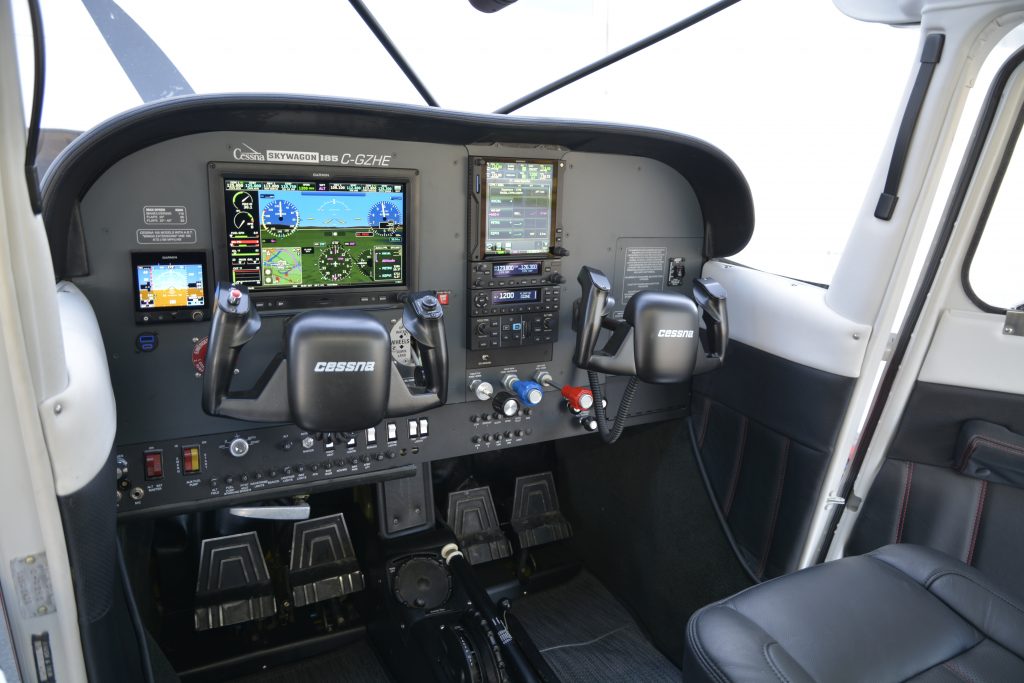
Aircraft & Owner:
The Cessna 185 is a descendant of the Cessna 180 with a more powerful engine, and a slightly longer airframe, thus giving it a higher useful load. While the Cessna 185 traditionally came in a tailwheel configuration, it was also popular to place it on either straight floats, or as we see on this 185, amphibious floats. This particular 185 was owned by a private owner and was based at Fort Langley Airport, just 7 miles away from Maxcraft. When the owner passed away, and the widow was planning to sell the aircraft, our customer, a close friend, thought he should rebuild it into a turn-key, best in its class flying machine.
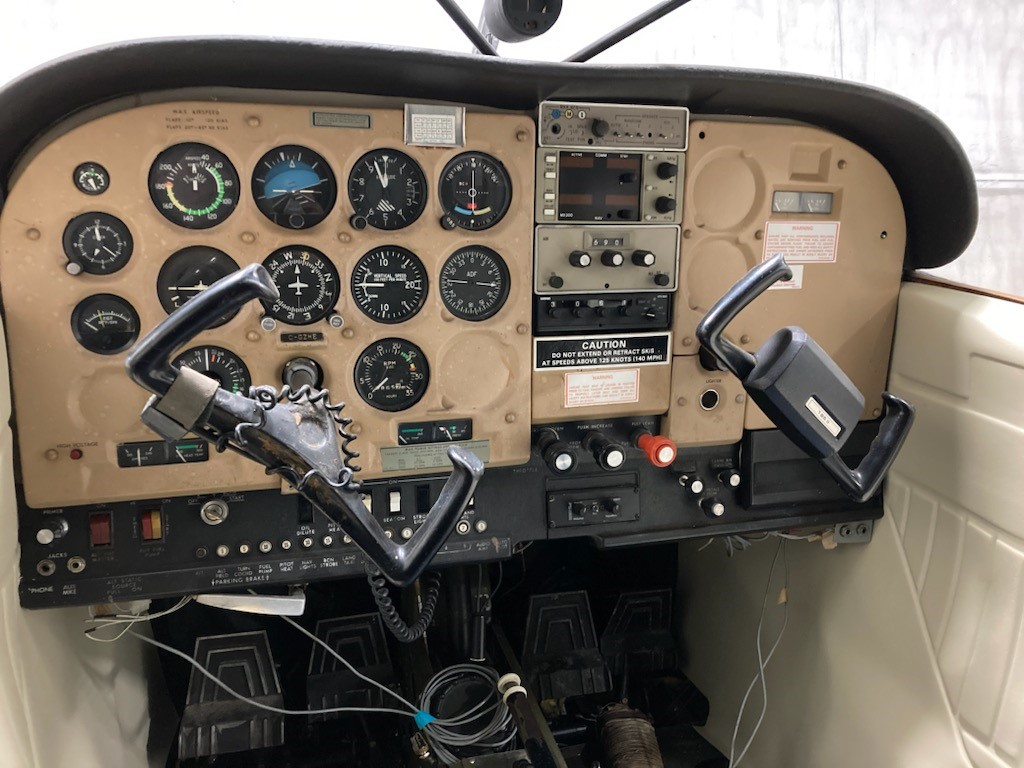
Need:
Our customer wanted to transform this tired Cessna 185 into a top of the line aircraft ready for anything the next owner could possibly want to do with it. While a majority of our part of the job was avionics, we partnered with Langley Aero Structures, and Port Interiors to cover every last detail on this 185.
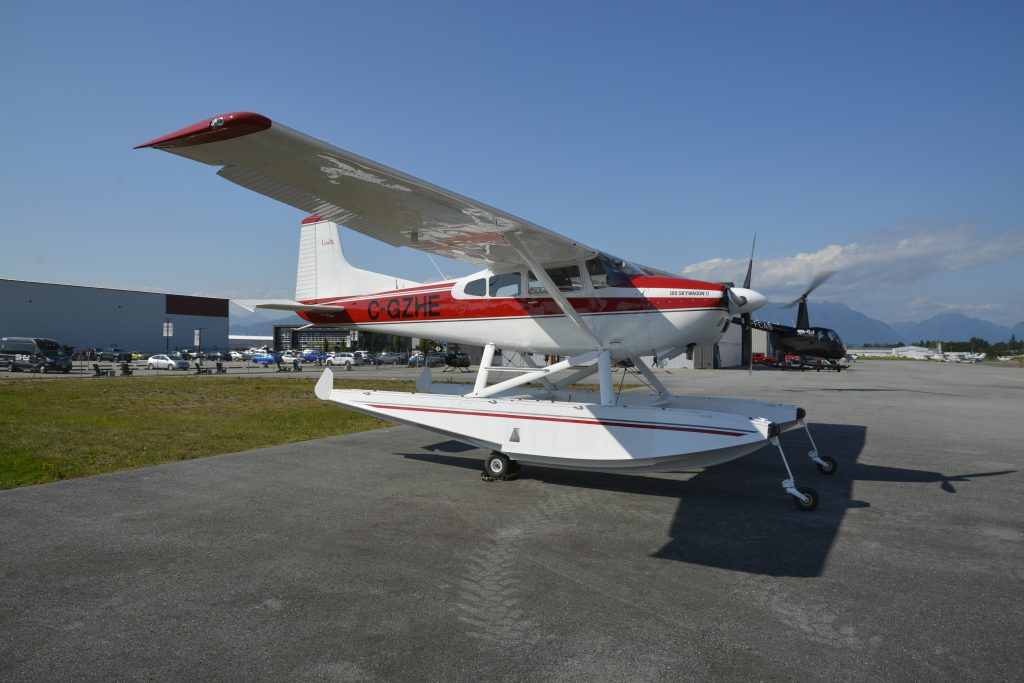
To meet the expectations of our customer, and the overall market for 185s, we installed a full Garmin glass panel solution providing safety and ease of use whether you’re flying IFR in complex airspace or simply flying lake to lake on a bright sunny day.
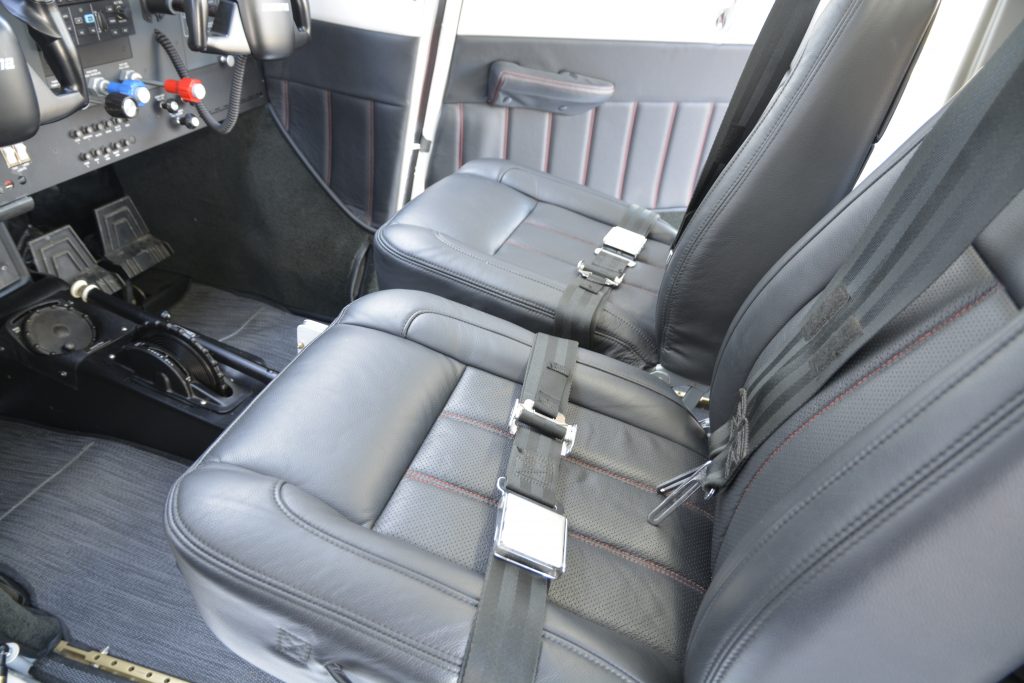
On the non-avionics side of things, almost no part of this aircraft was left untouched during this restoration. The entire airframe was disassembled, everything from the interior to the wings were removed. All the painted surfaces were paint stripped allowing the faded vintage paint scheme to be replaced with a fresh and vibrant modern looking livery. Langley Aero Structures took care of a large portion of the rebuild process, including replacing some of the belly skin. The entire interior was replaced with a custom-made interior with leather seats designed and installed by Port Interiors. This 185 truly feels more luxurious than the day it left the factory.
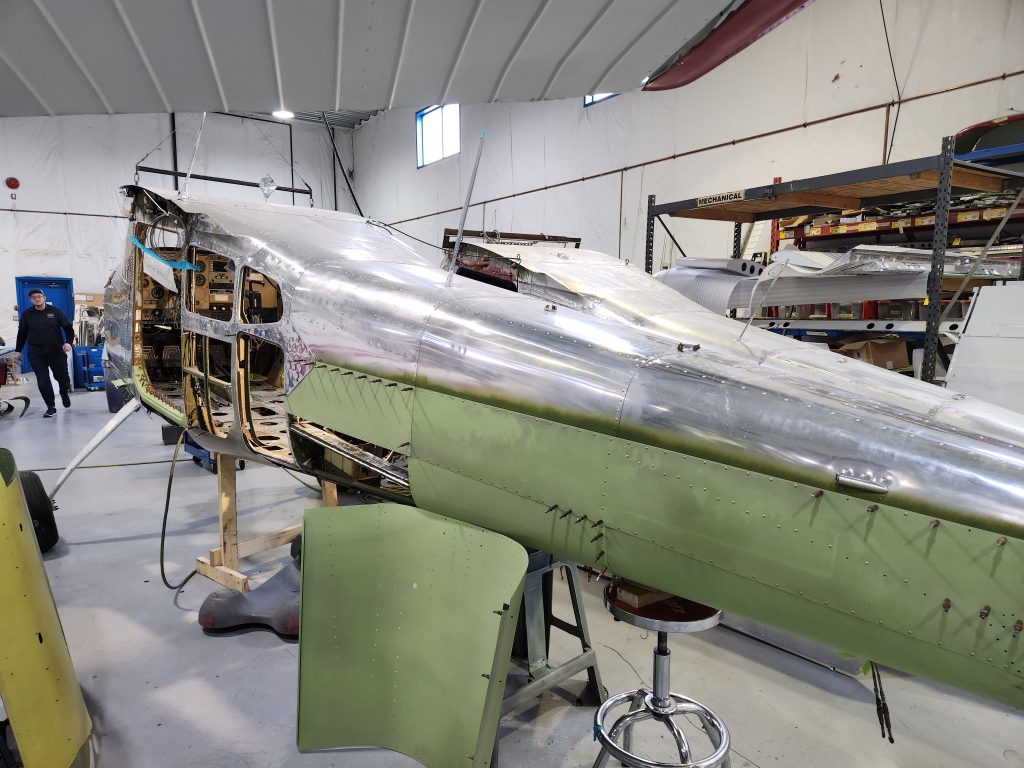
NEW EQUIPMENT LIST
| G3X | Integrated Primary Flight Display with SVT (Garmin) |
| G5 | Backup Electronic Flight Instrument (Garmin) |
| GFC 500 | Digital Autopilot (Garmin) |
| GTN 750 Xi | Touchscreen Flight Navigator and Multifunction Display (Garmin) |
| FlightStream 510 | Wireless Cockpit Connectivity (Garmin) |
| GA35 | GPS Antenna (Garmin) |
| CI121 x2 | VHF Comm Antenna (Comant) |
| GMA 35C | Remote Mount Digital Audio Panel (Garmin) |
| GNC 255 | VHF Navigation Receiver and Communications Transceiver (Garmin) |
| GTX 345 | ADS-B In/Out Transponder (Garmin) |
| ELT 345 | 406MHz Emergency Locator Transmitter (Artex) |
| GAD 29 | Compact GPS/Navigation Data Interface Adapter (Garmin) |
| GEA 24 | Engine Interface Unit (Garmin) |
| GSB 15 x2 | USB Charging Ports (Garmin) |
| MaxPanel | Custom Powder Coated Instrument and Lower Panel (Maxcraft) |
| S4628-1636 | Overhead Cockpit Speaker Assembly (Cessna) |
| LEMO Jacks | Powered Headset Jacks (Bose) |
| CW-001 | New Control Yokes (Avion Research) |
| LED Lighting | All LED Exterior Lighting (Whelen Aerospace Technologies) |
| SmartGlide | Dedicated Smart Glide Switch (Garmin) |
| Hat Switch | 4-function Remote Switch on Yoke |
| Aircraft re-assembled after paint and interior work |
| Overhauled engine IO-520-D by ProAero engines |
| New MT 3 Blade Propeller |
| New Acorn exhaust |
| New McFarlane engine controls |
| New PCU 5000 Propeller governor |
| New Sportsman STOL Kit |
| New Wing-X STOL Wing Extensions |
| New L/H and R/H fuel bladders |
| New McFarlane Fuel Senders |
| New McFarlane Flap and Aileron Cables |
| New McFarlane Pilot and Co-Pilot Seat Rails |
| New McFarlane Flap Roller Kit |
| New McFarlane trim actuators |
| New Mountainview Door Stewards |
| New fuselage belly skins and door sills |
| L/H and R/H elevators re-skinned |
| L/H and R/H ailerons re-skinned |
| L/H and R/H flaps re-skinned |
| Horizontal stabilizer re-built |
| New cabin windows and windscreen |
| New PPonk Aviation Rudder and Elevator hinge bearings |
| Wipline 3730 Amphibious floats installed |
| Complied with all applicable Airworthiness Directives |
| Interior | Custom Premium Leather Interior |
| Paint | Full Aircraft and Float Paint Job |
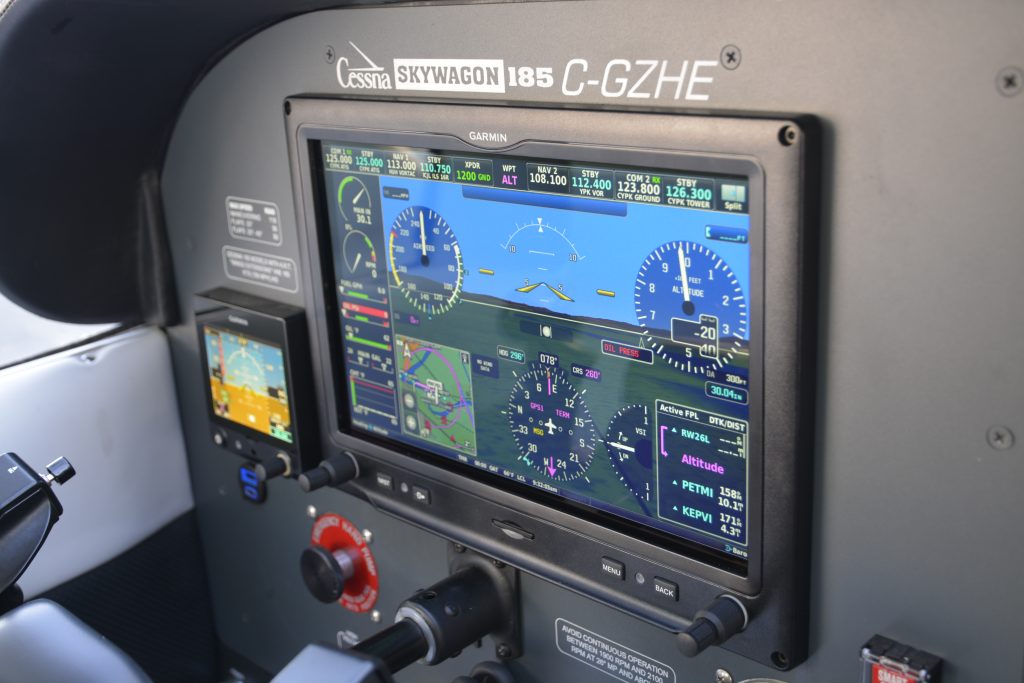
Maxcraft Solution:
The primary interface for the pilot in this 185 is the Garmin G3X primary flight display (PFD) The Garmin G3X made it’s first appearance in the experimental world, named G3X with the X standing for eXperimental. Garmin then got certification for the G3X to be installed in type certified airplanes and it has become a popular alternative to a full blown G500 TXi primary flight display, primarily for the lower cost of entry. For a lower price point you still get a large, touchscreen primary flight display which integrates seamlessly with other Garmin products such as GTN navigators and engine monitoring systems. Alongside the G3X, we installed Garmin’s engine indication system which will display data on the right side of the G3X display and allows the pilot to download engine data from flights via the Garmin Pilot app for review, or to send to his mechanic for troubleshooting any engine irregularities in flight.
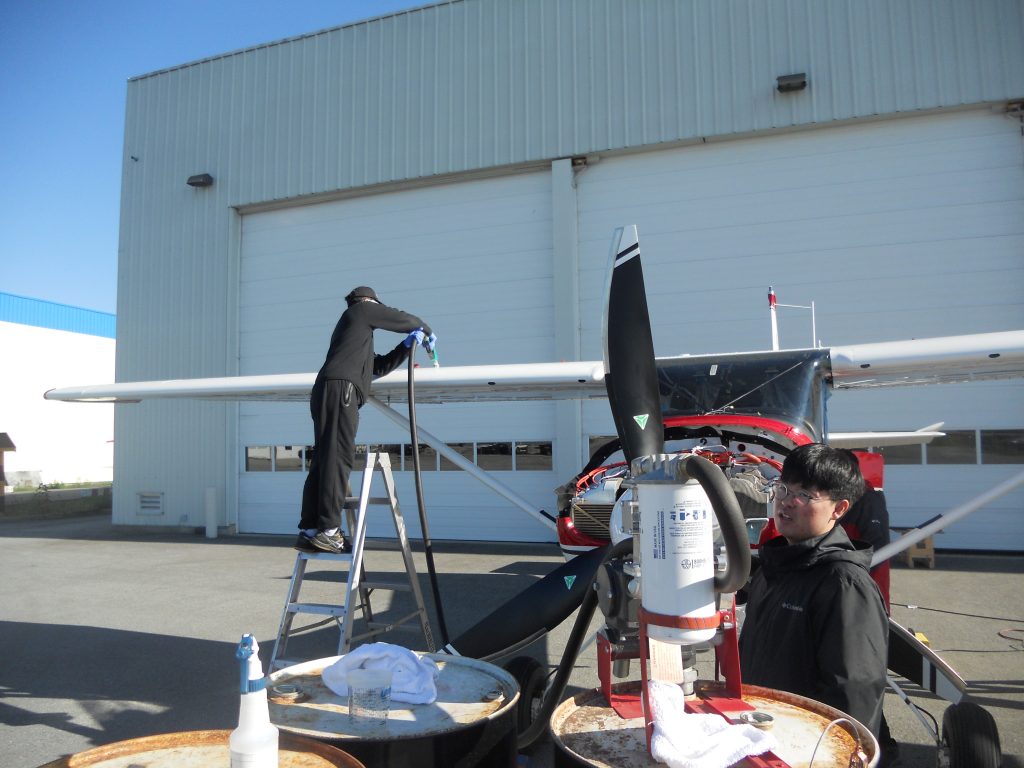
The Garmin GTN 750Xi is one of the most advanced navigators on the market. This 6.9” touchscreen takes on the role of a traditional nav/com, GPS, and multifunction display. The touchscreen interface coupled with the easy to navigate menu system which will be familiar to anyone who has used a recent Garmin product make tasks which would be time consuming, or draw attention away from more important things easy, and faster. The FlightStream 510 which is installed in the SD card expansion slot on the GTN 750Xi brings even more capabilities to the GTN 750Xi. The ability to wirelessly transfer flight plans from Garmin Pilot or Foreflight, easy updates of aeronautical charts and other databases, and even the ability to view ADS-B in traffic on a supported mobile device and app is the perfect finishing touch for an already impressive device.
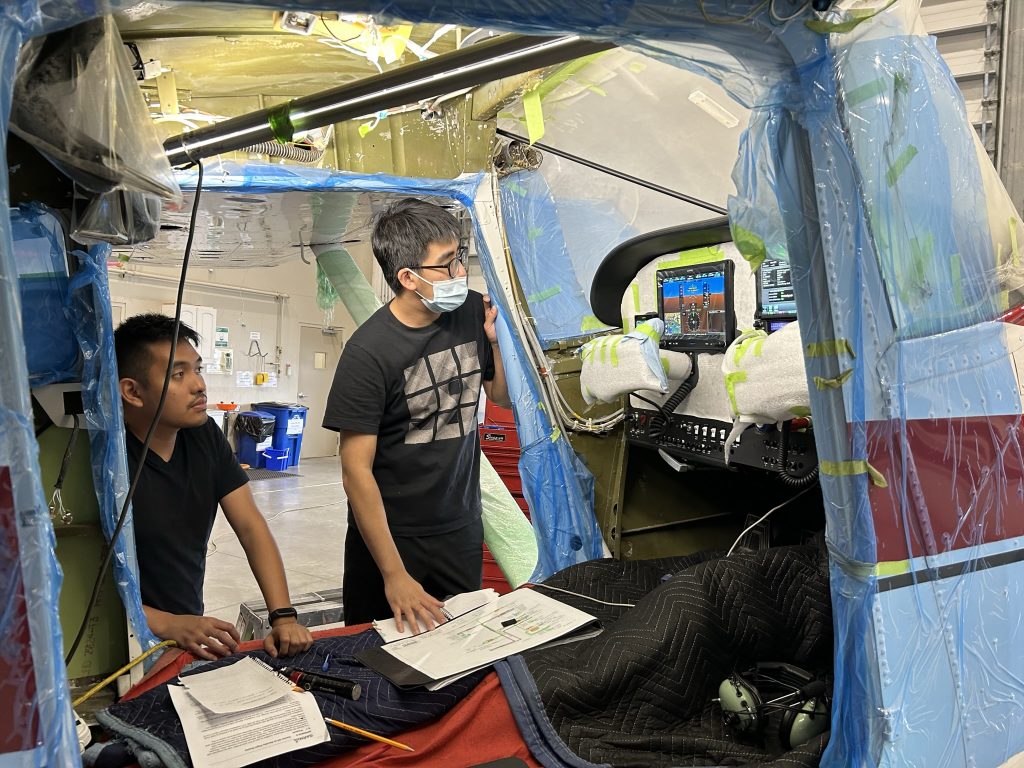
Designed specifically for use with the GTN 750Xi, the GMA 35C remote audio panel brings all the advanced features found in a digital audio panel, while saving panel space. The GMA 35C mounts on the backside of the GTN 750Xi and is controlled entirely through the touchscreen making any option just a few taps away.
With any electronic primary flight display, it is a legal requirement to add in an emergency backup flight instrument in the rare possibility a total electrical failure is experienced in flight. The Garmin G5 is the perfect option for a backup. The G5 features a built-in battery backup with up to 4-hours of power. The bright 3.5” colour display is easy to read in any conditions whether it’s a bright sunny day, or deep in instrument meteorological conditions when everything else has failed.
While the GTN 750Xi has a built-in VHF airband transceiver, many pilots like to have a separate radio to monitor multiple frequencies, and as a backup in case the primary radio fails. The GNC 225 is a versatile radio with a sunlight-readable display, and an easy-to-use frequency lookup by airport identifier. Simply enter an airport code and the GNC will automatically tune to that frequency. The GNC will also do the opposite, when a frequency is entered. The airport identifier and purpose will be displayed below the frequency, such as KOSH ATIS, or KOSH TWR. Importantly, this secondary radio will act as a secondary navigation source to the GTN 750 Xi, which is a legal requirement for IFR flight.
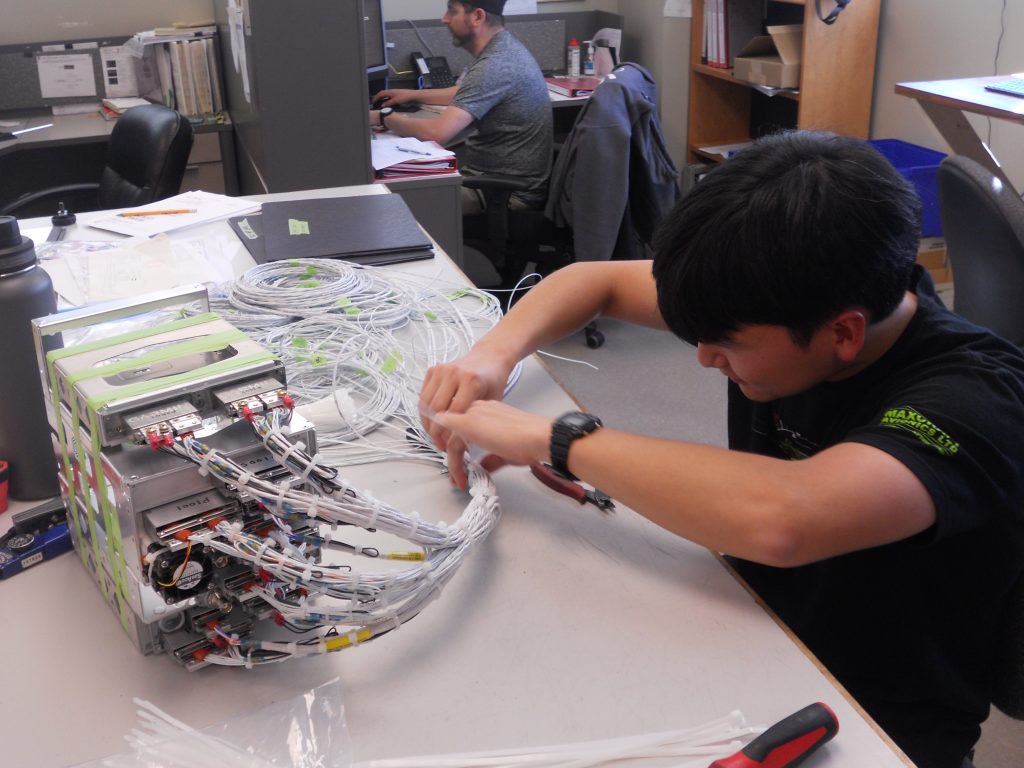
The GTX 345 from Garmin is an ADS-B in and out transponder. Meeting the requirements to fly in certain airspace in the United States where ADS-B is mandated, the GTX 345 also integrates with the GTN 750Xi to display ADS-B traffic targets, as well as allowing the pilot to adjust settings such ad mode, or squawk code, or even ident all using the GTN’s touchscreen.
An all-digital autopilot can offer precise, and smooth flying, and can dramatically reduce pilot workload on IFR flights. Garmin has one of the best and most cost-effective digital autopilot options for general aviation aircraft. The GFC 500 offers all the capabilities you would expect from a two axis autopilot, as well as a wide range of safety features. The dedicated return to level button on the GFC 500 can make recovery from unusual attitudes as easy as pressing a button. Overspeed, underspeed, and electronic stability and protection, will gently pull the controls back towards safety if the pilot is approaching an unsafe flight condition.
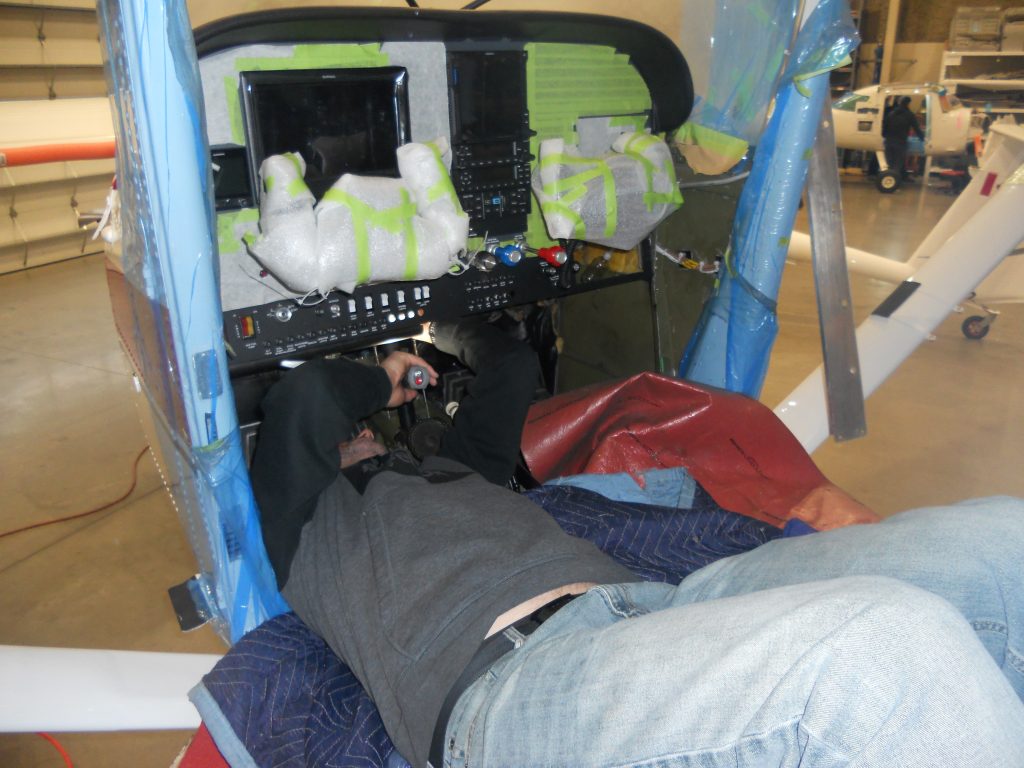
With this aircraft being placed on amphibious floats, it will often be operating into and out of remote lakes. With many of these areas having close to zero ways to communicate with the outside world due to a lack of cell service, and even range for aircraft VHF radios, or ATC surveillance, a 406 MHz emergency locator transmitter is a must, both logically and to meet the approaching 406MHz ELT mandate in Canada. The Artex 345 will transmit on both the VHF emergency frequency of 121.5 MHz, as well as the satellite frequency of 406 MHz if a crash is detected, or if the panel mounted switch is set to on. This will alert emergency crews of an emergency, as well as the ELT’s current location in even the most remote of areas.
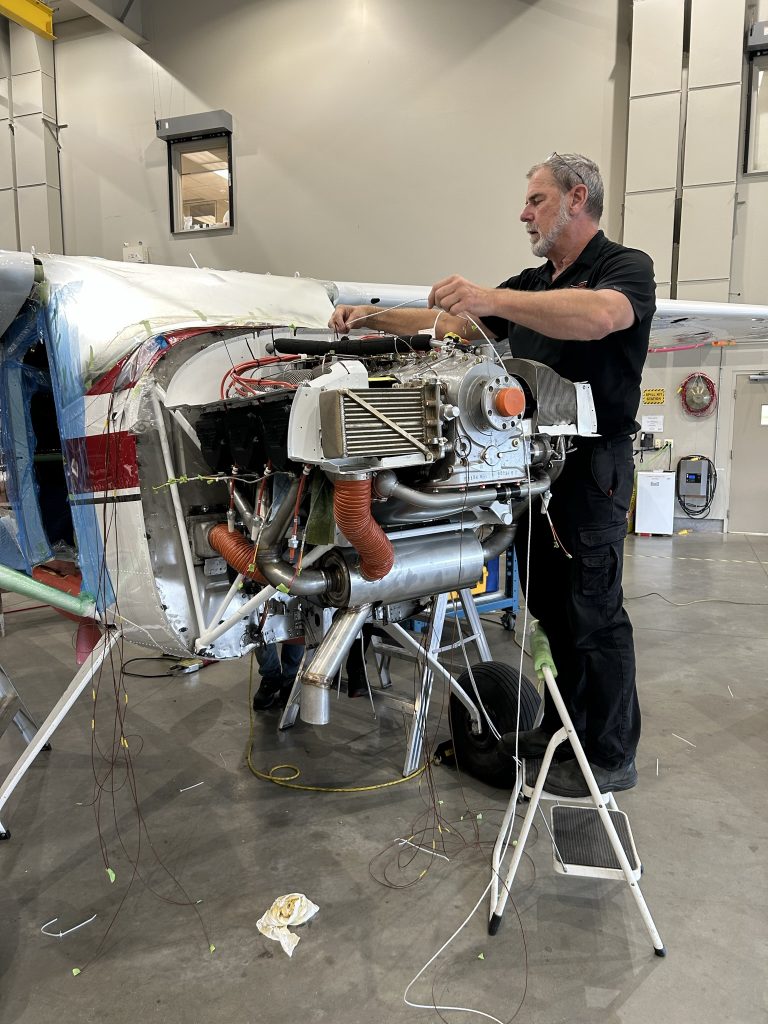
While many of these upgrades were major pieces of equipment, we also installed some smaller quality of life items. Both the GSB 15 USB charger, and the CH93 digital clock and high-power USB charger will give the pilot and passengers more than enough power to keep all their devices charged, even on the longest of flights. All the exterior lights were replaced with super bright LED lights from Whelen Aerospace Technologies, which will make this Cessna 185 super visible to other aircraft both during the day and at night.
“Approximately, 35 years ago Maxcraft helped me with the Avionics on a Bell 47. Since that time, Daryl and his team have looked after all my aircraft including Bell 206 and Bell 412.In 2022, I purchased a Cessna 185F that was ready for a rebuild. I contacted Maxcraft to look at a new avionics package. Maxcraft supplied me with a quote and timeline with this we moved forward.The end result was perfect. The price that was quoted had no cost overruns and the delivery was to the day. The team at Maxcraft were a pleasure to worked with and their product was second to none.
I would recommend the group at Maxcraft to anyone who demands perfection.”.
Les Knight


